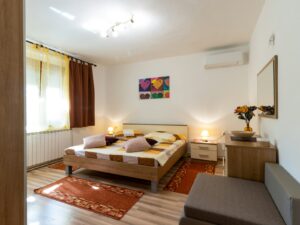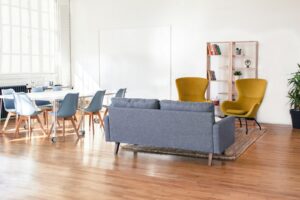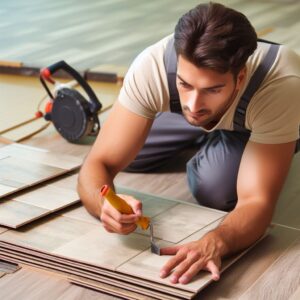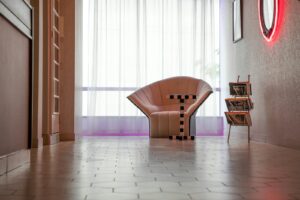While bamboo flooring can be used in various areas of a home, including some areas with moderate moisture, it’s generally not recommended for use in bathrooms. Bathrooms typically have high levels of moisture and humidity, which can pose a risk to bamboo flooring over time. Even with proper sealing and maintenance, the frequent exposure to moisture in a bathroom can increase the likelihood of damage such as warping, swelling, or mold growth.
Given these concerns, it’s advisable to explore alternative flooring options specifically designed for wet environments when considering bathroom renovations or installations. Materials like ceramic tile, porcelain tile, vinyl plank, or luxury vinyl tile (LVT) are all popular choices for bathrooms due to their waterproof properties and ability to withstand moisture without damage.
Bathroom Flooring Options
Ceramic tile is a popular choice for bathroom flooring due to its durability, water resistance, and versatility in design. It’s made from clay and other natural materials, which are fired at high temperatures to create a hard, dense surface.
Ceramic tile comes in a wide range of colors, patterns, and sizes, allowing for customization to suit any bathroom style. It is highly resistant to water, stains, and scratches, making it an ideal choice for wet environments like bathrooms.
Luxury vinyl tile (LVT) is a synthetic flooring material that mimics the look of natural materials like wood or stone. It consists of multiple layers, including a wear layer, decorative layer, core layer, and backing layer, which are fused together to create a durable and waterproof product.
LVT is available in a wide variety of styles, colors, and textures, allowing for endless design possibilities in bathrooms. It is highly resistant to water, making it suitable for use in bathrooms, kitchens, and other moisture-prone areas. LVT is softer and warmer underfoot compared to ceramic tile, providing added comfort in bathroom spaces.
Teak is a tropical hardwood known for its natural beauty, durability, and water-resistant properties. It has a high oil content that naturally repels water, making it a popular choice for outdoor furniture, boat decks, and bathroom flooring.
Teak flooring adds warmth and elegance to bathroom spaces, with its rich golden-brown color and distinctive grain patterns. While teak is naturally water-resistant, it’s essential to ensure proper sealing and maintenance to protect the wood from moisture and maintain its appearance over time.
Teak flooring requires regular cleaning and occasional resealing to prevent water damage and maintain its luster.
Read More
Vinyl Flooring for Bathrooms and Kitchens





